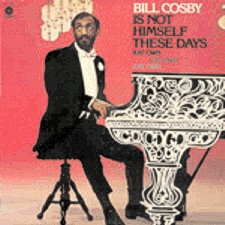Background
For nine years, Cosby released at least an album a year, starting in 1964. After a three-year hiatus, this was his first comedy album since 1973's Fat Albert , albeit in musical form, and he wouldn't return to a full-fledged stand-up album again until 1977's My Father Confused Me... What Must I Do? What Must I Do? .
The first single, "Yes, Yes, Yes", became one of Cosby's biggest charted hits after "Little Ole Man (Uptight, Everything's Alright)", reaching number 46 on the Billboard Hot 100 and number 11 on the Billboard rhythm and blues singles chart. [2] The song spoofed Barry White's deep-voiced spoken word monologues. "Ben" was sampled by Jurassic 5 on their 2002 song "After School Special".
This page is based on this
Wikipedia article Text is available under the
CC BY-SA 4.0 license; additional terms may apply.
Images, videos and audio are available under their respective licenses.
